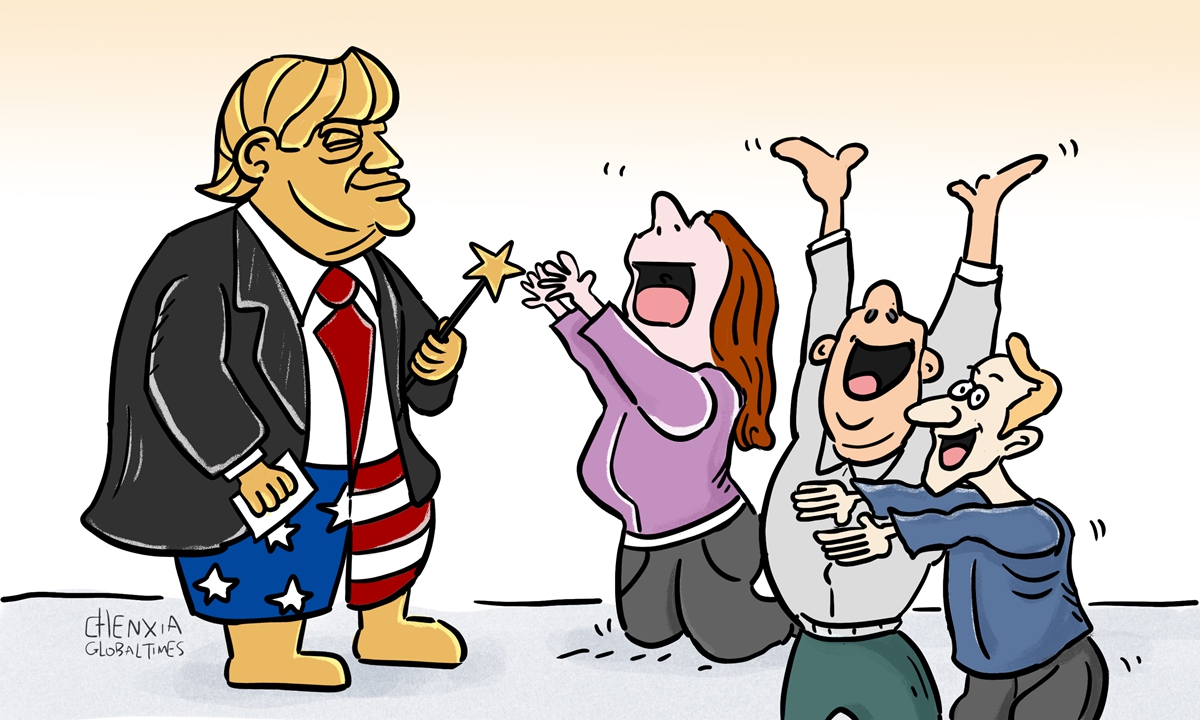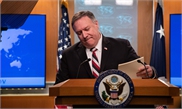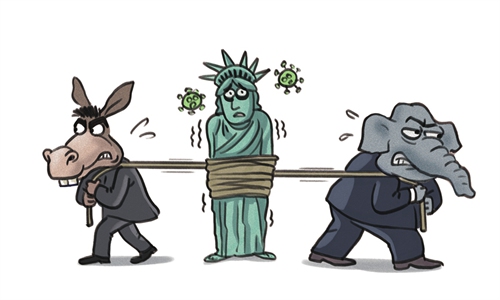Is the US still a secular country, or religious?

Illustration: Chen Xia/GT
Many Chinese netizens were surprised when seeing the photo of evangelicals worshipping a golden statue of former president Donald Trump. This has prompted a query: Is the US still a secular country?Obviously, in the eyes of those who worship Trump, he is a "godsent" savior. They support Trump, as always. Such populism with religious extremism at the center has become an important factor of US division.
Of course, it is difficult to estimate how many among Trump's 70 million supporters hold extreme religious thoughts. Nonetheless, some evangelicals have resorted to extreme words and deeds during and after the November elections. This took place for the first time and had an unprecedented impact on US politics.
Evangelicalism, which is a newly emerged faction of protestant Christianity, differs from liberals. In history, the extreme conservative forces in Evangelicalism were not that powerful. They once supported the Abolitionist Movement in the 18th and 19th century. But since they became a mainstream protestant sect in the late 1970s, they have been the vote base of the Republican Party.
Over the past 40 years, evangelicals have come to make up about 20 percent of the American population, with whites forming the majority.
US nonprofit organization Public Religion Research Institute published a report in October 2019, which shows that 77 percent of white evangelical Protestants approve of the job Trump was doing in office. It is hard to tell whether Trump has catered to evangelicals or if it is the other way around. All in all, evangelicals have found Trump as a spokesperson.
Michael Gerson, a columnist at The Washington Post, published an article in The Atlantic in the April 2018 issue entitled, "The Last Temptation." He wrote, "In fact, evangelicals would prove highly vulnerable to a message of resentful, declinist populism. Donald Trump could almost have been echoing the apocalyptic warnings of Metaxas and Graham when he declared, 'Our country's going to hell.' Or: 'We haven't seen anything like this, the carnage all over the world.'"
"But when the candidate talked of an America in decline and headed toward destruction, which could be returned to greatness only by recovering the certainties of the past, he was strumming resonant chords of evangelical conviction," Gerson added in the article.
There is a phenomenon worthy of attention: Since the start of the 21st century, the expansion and acceleration of globalization shows that the power of capital in the US has seen the gap between the rich and poor grow exponentially. It has seen increased secularization too and this has had an unprecedented impact on traditional religious values.
As liberal theology has begun to decline and the conservative forces of evangelicalism started to rise, the latter has shown a strong impulse to return to the public sphere - with a tendency toward extremes.
Casper ter Kuile, ministry innovation fellow at Harvard Divinity School, said in an interview with BBC in 2018 that, "more than one in three millennials are now religiously unaffiliated. On average 3,500 churches close every year in America." The phenomenon of such a generation gap has accelerated the worries of middle-aged and elderly white evangelicals, and has made them become more conservative.
The US was originally a country with Christianity as the most prevalent religion. The US systems and American values are all rooted in Christianity. Although the US has had a quite high degree of secularization, religion still exerts an important influence on politics.
The trouble now the US faces is that religious extremism has caused political divisions, which will undoubtedly increase the costs and difficulty for the Biden administration to heal the nation. More liberals are worrying that this will undermine US society's inclusiveness and pluralism, which are important factors that the US relies on. Considering the recent violent acts against Asian Americans, clearly the pandemic is not the only reason for this problem.
Will the rise of evangelicalism and its extreme tendencies affect how Americans view the world?There is data, which is a bit old, that can still point to some problems to answer this question. A Pew Research Center survey in 2014 found that despite high levels of political polarization, most Americans in each major political party said "it wouldn't matter" if an immediate family member married someone who identifies with the opposite party. But fewer US adults would welcome anyone who doesn't believe in God. As the Washington Post put it, "It's okay to marry a Republican or Democrat, just not an atheist."
The author is a senior editor with People's Daily, and currently a senior fellow with the Chongyang Institute for Financial Studies at Renmin University of China. dinggang@globaltimes.com.cn. Follow him on Twitter @dinggangchina




